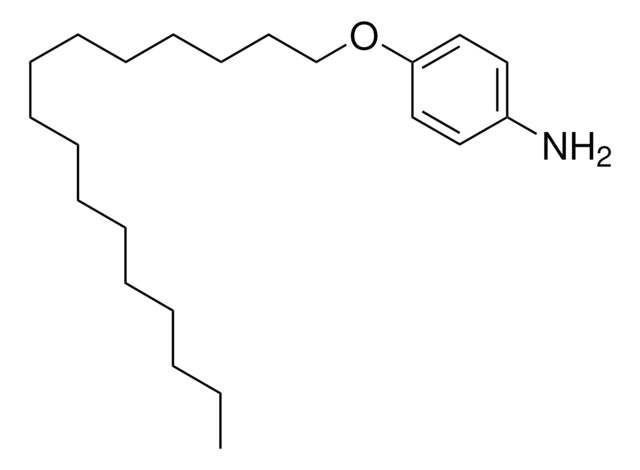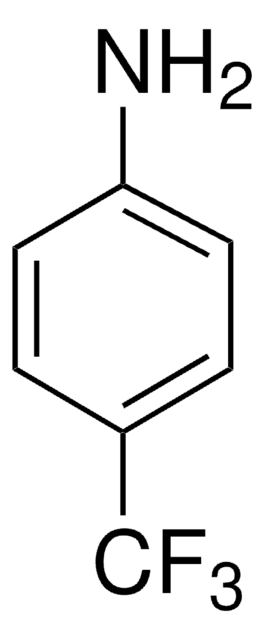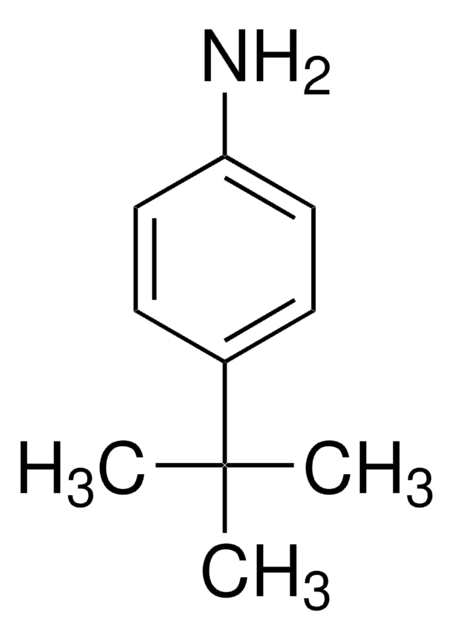About This Item
Recommended Products
Assay
97%
bp
254-255 °C/15 mmHg (lit.)
mp
53-56 °C (lit.)
SMILES string
CCCCCCCCCCCCCCCCc1ccc(N)cc1
InChI
1S/C22H39N/c1-2-3-4-5-6-7-8-9-10-11-12-13-14-15-16-21-17-19-22(23)20-18-21/h17-20H,2-16,23H2,1H3
InChI key
RBCCQATUVPNPGQ-UHFFFAOYSA-N
Application
- in simple solution based method for the gold (Au) metallization of DNA resulting in a Au nanowire network
- in fabrication of hybrid organized molecular films by Langmuir-Blodgett (LB) technique and their photoluminescent properties has been investigated
- in seed mediated synthesis of anisotropic rod shaped gold nanoparticles in organic media
Signal Word
Warning
Hazard Statements
Precautionary Statements
Hazard Classifications
Eye Irrit. 2 - Skin Irrit. 2 - STOT SE 3
Target Organs
Respiratory system
Storage Class Code
11 - Combustible Solids
WGK
WGK 3
Flash Point(F)
235.4 °F - closed cup
Flash Point(C)
113 °C - closed cup
Personal Protective Equipment
Certificates of Analysis (COA)
Search for Certificates of Analysis (COA) by entering the products Lot/Batch Number. Lot and Batch Numbers can be found on a product’s label following the words ‘Lot’ or ‘Batch’.
Already Own This Product?
Find documentation for the products that you have recently purchased in the Document Library.
Our team of scientists has experience in all areas of research including Life Science, Material Science, Chemical Synthesis, Chromatography, Analytical and many others.
Contact Technical Service









